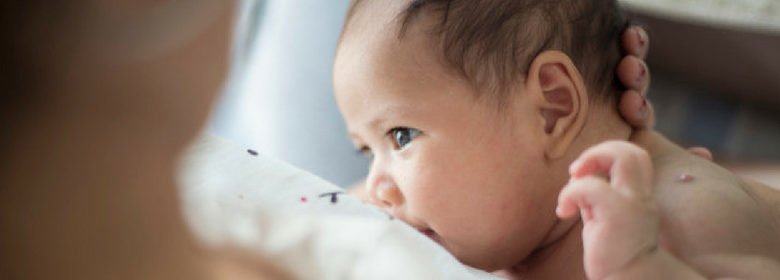A new mother’s guide to breastfeeding

Set every August for the first seven days of the month, World Breastfeeding Week aims at highlighting the huge benefits that breastfeeding can bring to the health of both the baby and the mother.
Breastfeeding is always encouraged by medical professionals, as it truly is the most ideal, natural food for a baby. Not only does breastfeeding provide nutrition from proteins, fats, carbohydrates, vitamins and minerals, but also contains antibodies that boost the baby’s immune system.
Many people find breastfeeding to be challenging at first, but don’t worry. It is completely normal. We have compiled a list of tips to help nursing mothers get through what can sometimes be a bumpy start:
- It is normal for the first few weeks to be tough – Similar to on-the-job training, do not expect to be an expert immediately. Every feed will not go great, but this is normal, and not something to stress about.
- Be comfortable – Make sure you are comfortable while breastfeeding. Learn about the various positions you can hold your baby to ensure both of you are comfortable.
- Alternate which breast you start with at each feed. – Make sure both breasts receive equal stimulation so they are emptied. This, in turn, tells the body to make more milk. Most women put a safety pin on the bra strap of the breast they finished on to remember to where to start the next feed.
- Don’t keep the baby on one breast for more than 20 minutes – This can cause sore/bleeding nipples which can make your next breastfeed difficult and painful.
- Make a schedule – 8-12 nursings are required in 24 hours. This translates into feeding approximately every 2-3 hours.
- If the baby is asleep, wake him/her up when it’s time to feed. – You need to ensure that 8-12 nursings are completed in one day, even if that means waking your baby up from a nap.
- Make sure the baby is getting enough milk – Babies tend to lose weight after birth until they are breastfed. Keep in mind that the goal is for your baby to be back to birth weight at around two weeks of age.
- Take care of yourself – It is important to hydrate, eat healthy and rest well while you’re breastfeeding. How you take care of yourself will translate to your baby.
You are recovering from delivery, and with all the changes your body is going through, it can be a challenging time. Consult with your doctor if you feel worried or if you need support during the stages of nursing. Most of all, be happy & grateful. After all, holding your little one in your arms makes it all worthwhile.
References:
https://babychangingstation.com/breastfeeding/

